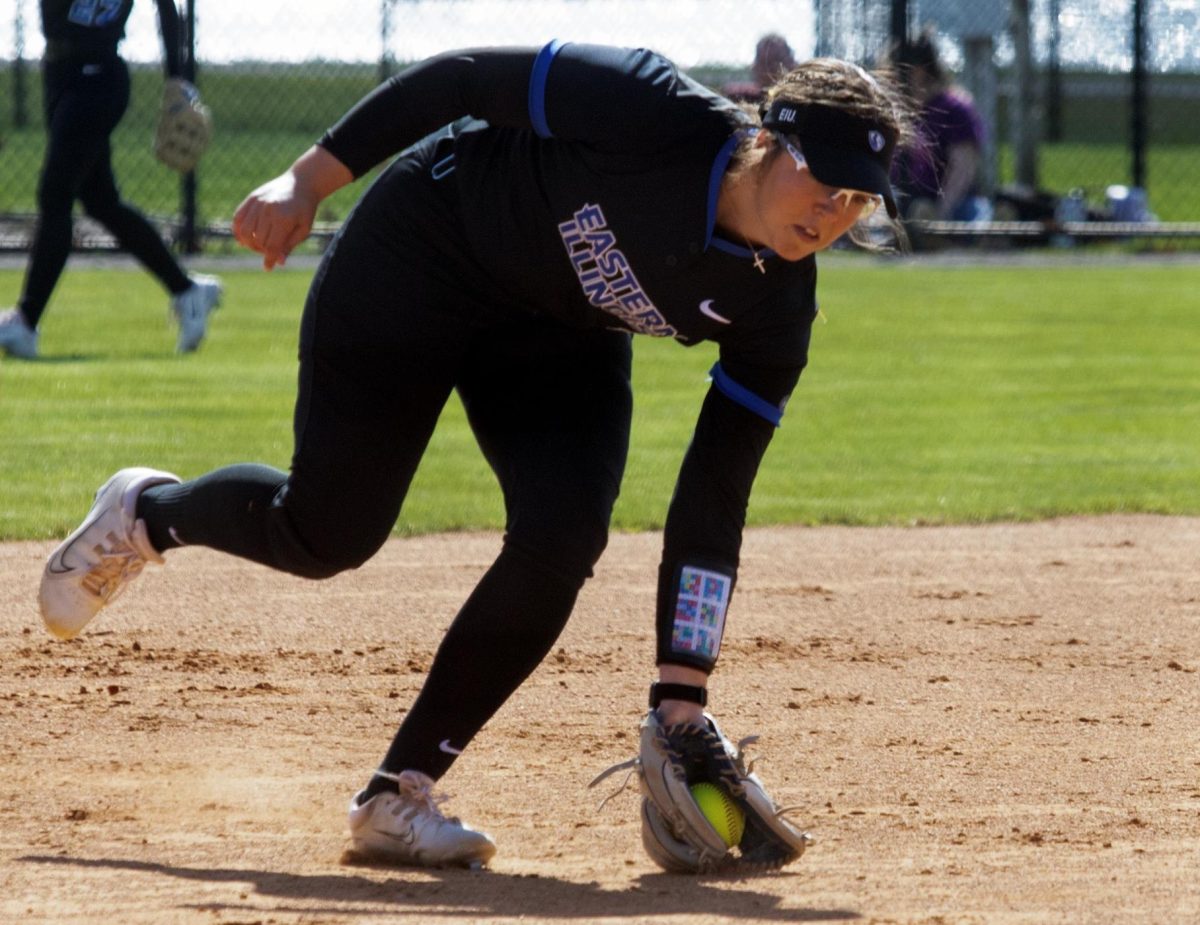Flash talks to discuss ‘The Handmaid’s Tale’
October 31, 2017
Professors in the English department are preparing to give their upcoming flash talks about issues surrounding the novel The Handmaid’s Tale.
English Club and Sigma Tau Delta helped to organize the five-minute flash talks.
They will be held at 5 p.m. on Wednesday at 7th Street Underground in the Martin Luther King Jr. University Union.
Angela Vietto, one of the speakers at the flash talks, said some students approached a faculty member and asked if they would give a lecture on The Handmaid’s Tale. They decided to do a series of flash talks instead.
“The idea of a flash talk is to compress yourself to about five minutes and say something meaningful,” Vietto said.
“The Handmaid’s Tale” is a dystopian novel which takes place in the near future in America, now renamed Gilead, where theocracy rules and women’s rights have been stripped away.
Melissa Ames, one of the speakers at the flash talks, said while being familiar with the novel or Hulu series may be beneficial, it is not necessary to understand the topics that will be discussed.
“I’m sure people have seen some of the pop culture surrounding the novel,” Vietto said.
“The most popular image is of the people in the red capes.”
Vietto will be comparing the Hulu series, which stars Elizabeth Moss, to the television series Mad Men, which also features the actress.
“I was a big fan of Mad Men,” Vietto said.
“So, I’m going to be talking about Mad Men in the context of The Handmaid’s Tale, which is called intertextuality.”
In the novel, women are no longer allowed to read or write, and certain women are used for childbearing purposes during the midst of an infertility crisis.
Ames said her flash talk will cover morality and the feminist voice used in the novel compared to the Hulu series.
“I actually wrote about The Handmaid’s Tale in my dissertation many years ago,” Ames said.
Additionally, Jeannie Ludlow will be discussing abortion studies in relation to The Handmaid’s Tale, and Marjorie Worthington will be tying the novel into modern politics.
“I think (dystopian novels) are a good critique because they take our current societal problems and amplify them,” Ames said.
Ames said the books provided a way for usually nonpolitical people to approach politics and get involved in a fantastical way.
“I think anyone who’s concerned about individual liberties or the state of politics, one good way to think about this is through literature,” Vietto said.
Travis Moody can be reached at 581-2812 or at tlmoody@eiu.edu.














![[Thumbnail Edition] Charleston High School sophomore Railyn Cox pitches the ball during Charleston's 8-7 win over Flora High School on Monday, March 31.](https://www.dailyeasternnews.com/wp-content/uploads/2025/04/SBHS_01_O-1-e1743982413843-1200x1023.jpg)

![[Thumbnail Edition] Senior Foward Macy McGlone, getsw the ball and gets the point during the first half of the game aginst Western Illinois University,, Eastern Illinois University Lost to Western Illinois University Thursday March 6 20205, 78-75 EIU lost making it the end of their season](https://www.dailyeasternnews.com/wp-content/uploads/2025/03/WBB_OVC_03_O-1-e1743361637111-1200x614.jpg)













![[thumbnail edition] Assistant Coach of the Linebackers, Rodman Noel talking to the linebackers about their positions at O'Brien Field on the Eastern Illinois University campus, Charleston Ill.](https://www.dailyeasternnews.com/wp-content/uploads/2025/04/FB_24_O-1-e1744671213207-1200x609.jpg)
![[THUMBNAIL EDITION] (From left to right) Head football coach Chris Wilkerson works with his son student assistant coach Peyton Wilkerson at football practice at O'Brien Field on the Eastern Illinois University campus on Thursday.](https://www.dailyeasternnews.com/wp-content/uploads/2025/04/FB_25_O-1-e1744234837107-1200x596.jpg)









































